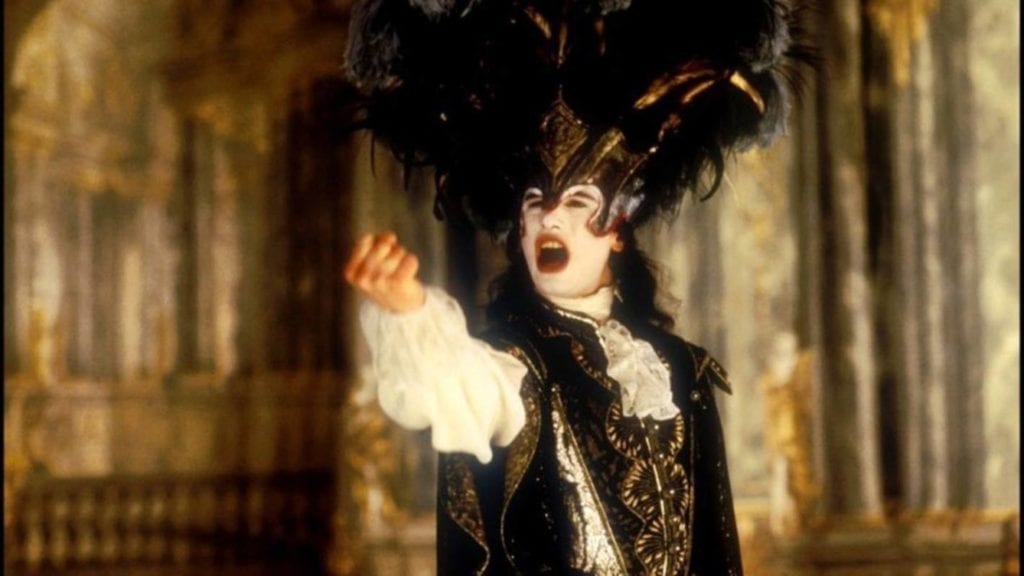
Dir. Gérard Corbiau. 111 minutes.
2/5
In 18th-century Italy, no one was more lauded than the “castrati,” men who sang with powerful but high-pitched voices thanks to a surgical procedure that need not be made explicit here. One of the most celebrated castrati — indeed, one of the most celebrated opera singers of all time — was Farinelli, a man whose public stature was that of an Elvis and whose anatomical limitations did little to discourage his crowds of female admirers.
Baroque opera was obsessed with big, bold, archetypal characters who were forever falling in love or falling on their swords, with little time left over for the humdrum occurrences of real life. So it is with “Farinelli,” a wildly melodramatic tale populated with delicate, be-ruffled men who look like escapees from an Anne Rice novel. In the first five minutes, we’re treated to the image of a nude man leaping to his death inside a cathedral, and things only grow more lurid and more ludicrous from there. Particularly enjoyable is the villainous George Frideric Handel (Jeroen Krabbé), who stomps around, menacing our heroes and wantonly crushing bugs with an outsized walking cane. All the conventions of the musical biopic are present, from the childhood trauma to the abuse of drugs — in this case, opium.
Like a crummy Holocaust movie that still manages to wring a few tears from the audience thanks to the gravity of its subject matter, “Farinelli” may succeed in interesting the viewer simply because the phenomenon of the castrato seems so alien to the modern world. Farinelli’s uncanny voice was recreated by digitally merging recordings of a female and a male singer. The music is silky, yet forceful — the film, merely a gaudy spectacle.




